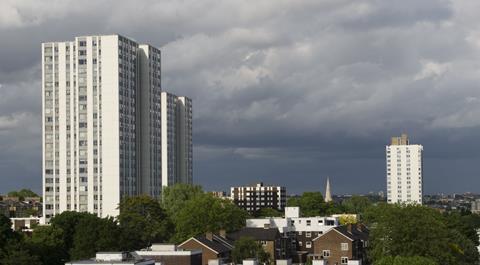MHCLG in an official consultation response says there are already stringent rules in place to determine social housing allocation
The new government has officially scrapped changes to social housing allocation tests, stating that the previous Conservative government’s proposed policies were “unnecessary”, costly or would harm communities.

The previous government consulted on proposed changes to how social housing is allocated in January. The eight-week consultation closed on 26 March.
The housing minister, Matthew Pennycook, revealed early last month that the government did not plan to enact the policy changes laid out in the consultation.
The government’s response to the consultation, published yesterday afternoon, stated that there are already stringent national and local rules in place to determine social housing eligibility.
>> See also: Fourteen housing bodies sign letter opposing ‘British homes for British workers policy’
>> See also: Housing bodies hit out at government over reported ‘British homes for British workers’ social housing policy
It concluded that introducing qualification tests would not add to powers that councils have in any meaningful way.
The proposed measures considered during the consultation were the introduction of a UK and local connection test, an income test and anti-social behaviour test.
The possibility of creating a new ground for eviction for individuals convicted of terrorist offenses was also considered.
The UK connection test would have meant non-UK nationals would only become eligible for social housing after 10 years of “lawful residence” in the UK, with exemptions for EEA, Swiss, and Irish citizens, as well as those entering through safe and legal resettlement routes.
Respondents were clear that councils already have powers to enact such tests and most are doing so. According to government statistics, 89% of councils have a local connection test or a residency test in place.
The Ministry of Housing, Communities and Local Government (MHCLG) said that more than two-thirds of the 500 consultation respondents did not agree with the test.
Concerns were raised about the test’s feasibility, with implementation costs potentially reaching “tens of millions of pounds” due to the need for extra staff, updated IT systems, and new data verification processes.
Particular concerns were raised about the test leading to a further increase in temporary accommodation use.
To avoid overwhelming councils with homelessness applications, additional exemptions for those owed a housing duty would have been needed.
MHCLG stated that these exemptions would have created a system nearly identical to the current one, but with significant additional time and costs to implement.
The government’s response stated “Given eligibility criteria for social housing is already tightly defined, the government does not agree that this would be a justifiable use of taxpayer money.”
In regard to changing the grounds for eviction, the consultation made clear that social landlords already have powers to evict tenants, and that the proposal to evict individuals convicted of terrorist offences could increase risks to public safety.
The Independent Reviewer of Terrorism Legislation warned that introducing a ground for eviction for those convicted of terrorist offenses could lead to “negative, potentially dangerous impacts,” including increased public safety risks, the potential to undermine rehabilitation efforts, and an increased likelihood of reoffending.
The government stated that it did not think the proposals on ASB or individuals convicted of terrorist offences were necessary or prudent.
It concluded: ”The only real answer to addressing the unmet demand for social housing is to increase the supply of good quality affordable homes. That is what this government will do. We are committed, over the course of this Parliament, to building 1.5 million high-quality, well-designed and sustainable homes as well as delivering the biggest boost to affordable housing for a generation.”










No comments yet